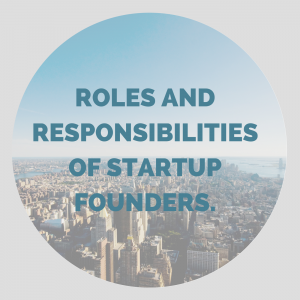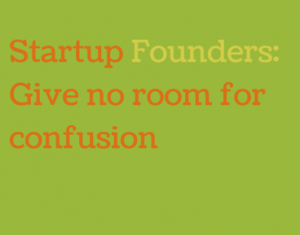 This is the 2nd in the 5 part series on ‘How to Sell in the US Market from India’. I had attended the Round Table organized by iSPIRT and here I attempt to capture the important points from the discussion. (You can read the first part here)
This is the 2nd in the 5 part series on ‘How to Sell in the US Market from India’. I had attended the Round Table organized by iSPIRT and here I attempt to capture the important points from the discussion. (You can read the first part here)
One of the topics of deep interest for the participant was on clearly understanding the role of the Startup Founders and where should their time and focus be optimally spent in order to achieve higher success.
As with the format of the Round Table, 15 startup founders shared their ideas which were wonderfully facilitated by Suresh Sambandam, CEO of OrangeScape. The founders spoke from their own experience as well as tapped into the practice of other successful founders. Here are the key learning from the discussion.
Be Prepared to Spend 16 Hour Workdays.
The Startup Founders are the ones who are the most passionate about their firm and they have everything riding on the success of the firm. It is they who believed in the fundamental business idea. One of the fundamental requirements is for the founders to set the right precedent by investing the bulk of their time on the business. This adds confidence and motivates the rest of the team members to work hard as well.
In the early days, it requires someone who knows the vision, the product as it stands today, the message that need to be communicated to the market, listen to customers to understand the buying process and also get the feedback from usage from existing customers via support. This means spending time with engineering/product, marketing, sales and support. This is where having more than one co-founders help a lot. But if you weren’t the blessed one then you have to pull it all yourself. Be prepared to spend 16 hour workdays across all these 4 functions.
Change your Work Timing
Remember that you are selling to the US Market and hence you need to adjust your working hours to match theirs. Your sales sales days typially starts like 6pm or 7pm India time and go on till 2am or 3am. This is a very crucial time that you need to spend. As a founder/co-founder you are essentially figuring out sales process. This is of paramount importance.
All Startup Founders Should be ‘Chief Sales Officers’
Sales is quite obvious. A business idea might be great but it amounts to nothing if the revenues don’t flow in. It’s very important for the founders to lead sales operations and spend a lot of time prospecting, pitching and listening to what customers are saying during the sales process. Having someone hired for this job during very early days doesn’t help at all, as it requires more connecting the dots w.r.t. to vision and product. Iteratively, the founders have to figure out the companies and the decision-makers profiles within the company. The more you are able to pin-point the decision-makers, the better are the chances of sales closures. This is called as ‘Ideal Customer Profile’.
Founders should do support a lot during early days!
While its a general trend for most startup founders to wear the Sales Head hat, most founders don’t pay enough importance to support. That’s usually relegated to a team member. Suresh Sambandam strongly reiterated that the founders do hands on support job just like a regular support person. This needs to be done with the attitude of NOT as a CEO, not as a founder, but just like a regular support person. This is important early on, to receive first hand feedback that is vital for the improvement of the product. Other startup founders who attended the session also felt that there is a strong correlation between support and sales. Better support results in happy customers which results in better up-sell and better reference leads. In fact, some of the founders felt that the support personnel must be paid on par with the sales staff in order to send a strong message that the company takes its support seriously. After the early days, while support team will grow on its own path, it is important for one of the co-founders to have direct ears to what is going on in support.
There is an excellent blogpost on Freshdesk that is worth reading.
Hire People Smarter than you
The first set of people can make a big difference to the success of a startup. The founder should directly be involved in identifying and interviewing the candidates. It’s critical for them not to let the ego get in the way. The best founders identify people who are way smarter than them. It’s also important for the founders to elucidate the vision of the company and narrate the company’s growth plans. By being highly involved in handpicking each and every employee, the founders can build a solid team with complementary skills needed for the success of the startup.



